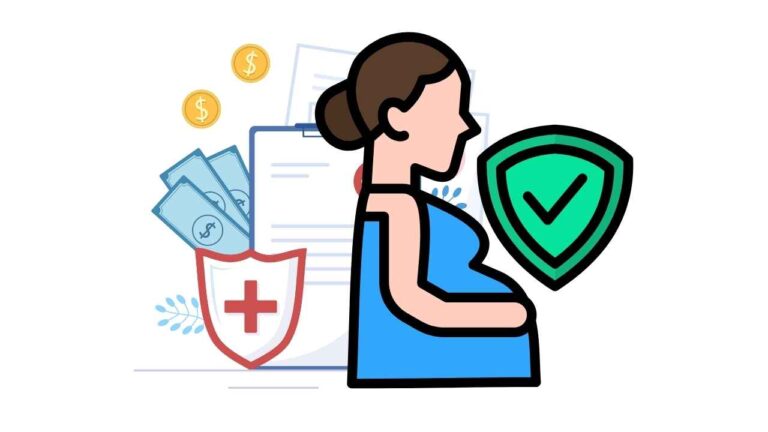Affordable Health Insurance for Self-Employed Individuals
Self-employment offers flexibility and control over one’s career path, but it also comes with unique financial responsibilities, including securing affordable health insurance. The rising cost of healthcare can be a significant burden for the self-employed, but there are numerous options available to help minimize expenses and ensure access to quality care. This comprehensive guide provides a thorough exploration of affordable health insurance options for self-employed individuals, empowering them to make informed decisions about their healthcare coverage.
Understanding Health Insurance Options
Individual Health Insurance:
- Purchased directly from an insurer, bypassing an employer.
- Premiums are based on factors such as age, health status, plan type, and deductible.
- High-deductible health plans (HDHPs) offer lower premiums but higher out-of-pocket expenses.
Short-Term Health Insurance:
- Temporary coverage for periods of 30 to 364 days.
- Lower premiums than long-term plans, but limited coverage and renewal options.
- Not a suitable substitute for comprehensive health insurance.
Association Health Plans (AHPs):
- Available through trade associations or professional organizations.
- Group plans that offer potential cost savings.
- Eligibility and premiums may vary depending on the association.
High-Risk Pools:
- State-based programs that provide coverage for individuals with pre-existing conditions.
- Premiums can be high, but guaranteed coverage is available.
Medicaid Expansion:
- Available in states that have expanded Medicaid coverage under the Affordable Care Act.
- Free or low-cost coverage for low-income individuals.
- Eligibility based on income and household size.
Finding Affordable Coverage
Compare Plans:
- Research different plans from multiple insurers.
- Consider factors such as premiums, deductibles, co-pays, and covered services.
Shop Around:
- Get quotes from different brokers or agents.
- Compare premiums, coverage options, and customer service.
Take Advantage of Tax Deductions:
- Self-employed individuals can deduct premiums paid for health insurance from their federal income taxes.
- Premiums can be paid pre-tax through a Health Savings Account (HSA) or Flexible Spending Account (FSA).
Consider a High-Deductible Health Plan (HDHP):
- HDHPs have lower premiums but higher deductibles.
- Combine HDHPs with HSAs to save for healthcare expenses.
Utilize Government Subsidies:
- Income-eligible individuals may qualify for premium tax credits or cost-sharing reductions under the Affordable Care Act.
- Check with your state’s Medicaid agency for any available assistance programs.
Additional Cost-Saving Strategies
Negotiate with Providers:
- Directly negotiate with healthcare providers for lower costs.
- Consider using telehealth services for convenient and affordable care.
Participate in Wellness Programs:
- Many insurers offer discounts or rewards for participation in wellness programs.
- Maintain a healthy lifestyle to reduce healthcare expenses.
Consider a Health Maintenance Organization (HMO):
- HMOs have lower premiums than other plans but restrict access to healthcare providers.
- HMOs emphasize preventive care, which can save costs in the long run.
Explore Health Sharing Ministries:
- Not-for-profit organizations that share the cost of medical expenses among members.
- May not meet all insurance requirements, but can provide affordable coverage for some circumstances.
Conclusion
Securing affordable health insurance as a self-employed individual is crucial for financial security and well-being. By understanding the available options, comparing plans, taking advantage of tax deductions, and implementing cost-saving strategies, individuals can minimize their healthcare expenses and ensure access to quality care. Remember to regularly review your coverage and explore new options as your income, health status, and personal circumstances change. By prioritizing health insurance, self-employed individuals can empower themselves to thrive financially and personally.
Frequently Asked Questions
1. What is the definition of self-employed?
Individuals who work for themselves and are not employed by an employer.
2. Am I eligible for affordable health insurance as a self-employed individual?
Yes, self-employed individuals are eligible for affordable health insurance through the Affordable Care Act (ACA).
3. Where can I find affordable health insurance plans for the self-employed?
Through your state’s Health Insurance Marketplace, private insurance companies, or agents.
4. What is the income requirement for affordable health insurance?
Your income must be below a certain level to qualify for subsidies and cost-sharing reductions.
5. What are the different types of health insurance plans available to the self-employed?
Individual health insurance plans, family health insurance plans, and short-term health insurance plans.
6. How much does health insurance cost for the self-employed?
The cost of health insurance for the self-employed depends on factors such as age, health, location, and plan type.
7. Can I get a subsidy to help pay for health insurance?
Yes, subsidies are available to low- and moderate-income individuals and families to help cover the cost of health insurance premiums and out-of-pocket costs.
8. How do I apply for affordable health insurance?
You can apply for affordable health insurance through your state’s Health Insurance Marketplace or directly with an insurance company.
9. What is the open enrollment period for health insurance?
The open enrollment period typically runs from November 1st to January 15th each year.
10. What happens if I don’t have health insurance?
Individuals who do not have health insurance may face a tax penalty and may be responsible for paying full price for medical expenses.

